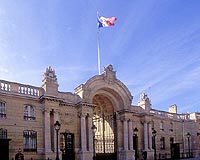 |
Amman (AFP) July 28, 2009 Jordan is forging ahead with a peaceful nuclear programme that would turn the energy-poor kingdom into an exporter of electricity, nuclear chief Khaled Tukan told AFP. "We are moving in great strides in the field of civilian nuclear energy in order to stop being dependent on the import of fuel," said Tukan, who chairs the Jordan Atomic Energy Commission (JAEC). Jordan is the latest Sunni Arab country, among them Egypt and pro-Western Gulf states, to announce plans for nuclear power programmes in the face of Shiite Iran's controversial atomic drive. "Our goal is transform Jordan from net energy importing to net electricity exporting country by 2030," added Tukan, whose country imports 95 percent of its energy needs. Jordan's 2007 energy bill was 3.2 billion dollars, the equivalent of 24 percent of its total imports and 20 percent of gross domestic product. The kingdom has six power stations with a total generation capacity of 2,400 megawatts, but it has been forced to buy five percent of its electricity needs from neighbouring Arab countries in the face of growing demand. In the country of nearly six million people, per capita electricity consumption is estimated at 2,000 kilowatts a year. "In 2030, electricity consumption will double," added Tukan, noting that "atomic energy is the most logical solution" to meet his country's growing power needs. "Four regions in Jordan have been demarcated for exploration of uranium," which is found in carbonate rocks and in phosphate. Jordan's 1.2 billion tonnes of phosphate reserves are estimated to contain 130,000 tonnes of uranium, whose enriched form provides fuel for nuclear plants. But Jordan has given priority to uranium mining, which is faster and less expensive, Tukan said. "The country has reached nuclear cooperation deals with six countries, France, China, South Korea, Canada, Russia and Britain, and hopes to sign three more agreements with Romania, Spain and Argentina," he added. In October 2008, French nuclear giant Areva started exploring for uranium resources in the central region of Jordan, which has 70,000 tons of carbonate rocks. "The work in this area is the most advanced and in the final stages of exploration," said Tukan. In February, Anglo-Australian mining giant Rio Tinto signed a deal with Jordan to explore for uranium, thorium and zirconium in Wadi Sahab Abiad, close to the border with Saudi Arabia. China's National Nuclear Corporation (CNNC), meanwhile, is searching for uranium in the northern area of Hamra-Hausha and Wadi Baheyya in the south. "We are currently trying to delineate the site of a nuclear reactor," said Tukan, adding that a potential site was in southern Jordan along the Red Sea, which is also bordered by Israel and Egypt. Jordanian and Israeli experts met in June to discuss environmental issues related to the plan, Tukan said, adding that he would hold talks on the project with Egyptian officials in August. "At the moment things are going smoothly," he said. "The Belgian company Tractebel Suez-GDF is responsible for studies of the site which is currently under scrutiny and an analysis of the safety and environmental impact." Tukan said the results of the studies would be shared with Egypt and Israel, which signed a peace treaty with Jordan in 1994. "If everything goes well, the reactor will be built in 2013 with a capacity of 1,000 megawatt, which will cover 25 percent of electricity generated. The exploitation of nuclear power generation is expected in 2017 or 2018," he said. Four companies are competing to build the nuclear plant: Areva, South Korea's Kepco, Atomic Energy of Canada and Russia's Atomstroyexport. Jordan, which signed an agreement in December with the United States to prevent the smuggling of radioactive materials from its territory, aims to build more reactors in 2018 and then again in 2020, at the same site, said Tukan. Share This Article With Planet Earth
Related Links Nuclear Power News - Nuclear Science, Nuclear Technology Powering The World in the 21st Century at Energy-Daily.com
 Energy chiefs meet at French president's office: photographer
Energy chiefs meet at French president's office: photographerParis (AFP) July 27, 2009 The heads of France's four leading energy groups were received Monday at the French presidential palace, an AFP photographer said. The four executives were Anne Lauvergeon of nuclear group Areva, Pierre Gadonneix of electricity group EDF, Gerard Mestrallet of gas and energy company GDF Suez and Christophe de Margerie of oil giant Total. "Mrs. Lauvergeon went to the Elysee ... read more |
|
| The content herein, unless otherwise known to be public domain, are Copyright 1995-2009 - SpaceDaily. AFP and UPI Wire Stories are copyright Agence France-Presse and United Press International. ESA Portal Reports are copyright European Space Agency. All NASA sourced material is public domain. Additional copyrights may apply in whole or part to other bona fide parties. Advertising does not imply endorsement,agreement or approval of any opinions, statements or information provided by SpaceDaily on any Web page published or hosted by SpaceDaily. Privacy Statement |